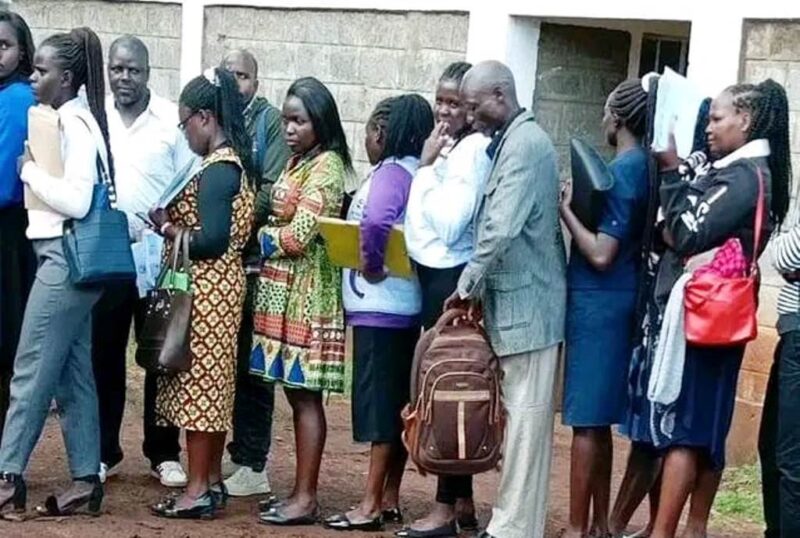Kenyan lawmakers have raised alarm over what they describe as discriminatory recruitment trends by the Teachers Service Commission (TSC), which they say leaves older graduates at a disadvantage.
Appearing before the National Assembly Committee on Education, TSC officials outlined their recruitment framework, emphasizing fairness, inclusivity, and the prioritization of marginalised regions. According to the commission, vacancies are distributed proportionally across counties, publicly advertised, and filled through merit-based interviews. Five percent of slots are also reserved for persons with disabilities.
But MPs challenged the process, citing cases where teachers who graduated over 15 years ago are still unemployed, while others who left training colleges only two years ago already hold TSC jobs. Homa Bay Woman Representative Joyce Osogo Bensuda said the situation was unacceptable given the age limit of 45 years for recruitment. “Many are now nearing the cut-off without ever working, despite being trained teachers. This is injustice,” she said.
Makueni MP Suzanne Kiamba shared stories from her constituency, where several women in their late forties remain jobless despite having valid TSC numbers and years of applications. “It is unfair that teachers retire without ever getting employed. That is a waste of public investment,” she said.
The lawmakers stressed that recruitment should give priority to older jobless graduates to prevent them from ageing out of eligibility. “Teachers should be absorbed earlier in their careers while they still have time to grow in the profession,” said Bensuda.
The committee also highlighted the need to revise subject prioritization, with MPs arguing that science disciplines are favored while arts and social sciences are neglected. They warned that the imbalance could have long-term implications on the quality of education.
In conclusion, MPs called for urgent reforms to ensure older jobless graduates are absorbed before they lose eligibility. They insisted that the current policies, while sound on paper, were failing to deliver fairness and inclusivity in practice.





